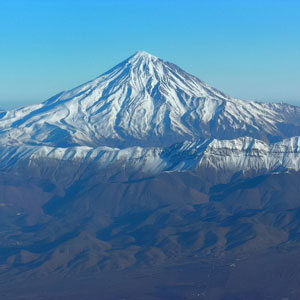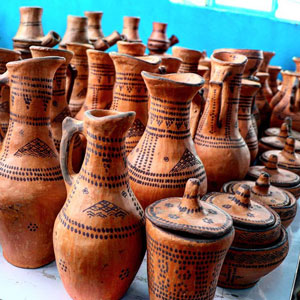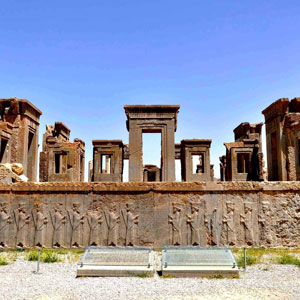 Signin with Google
Signin with Google Signin with Facebook
Signin with Facebook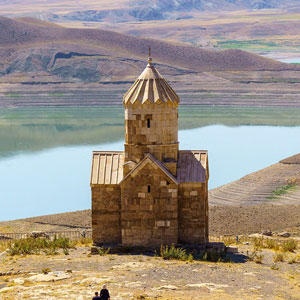 Places
PlacesQeshm, the Heaven of Geotourism in The Middle East
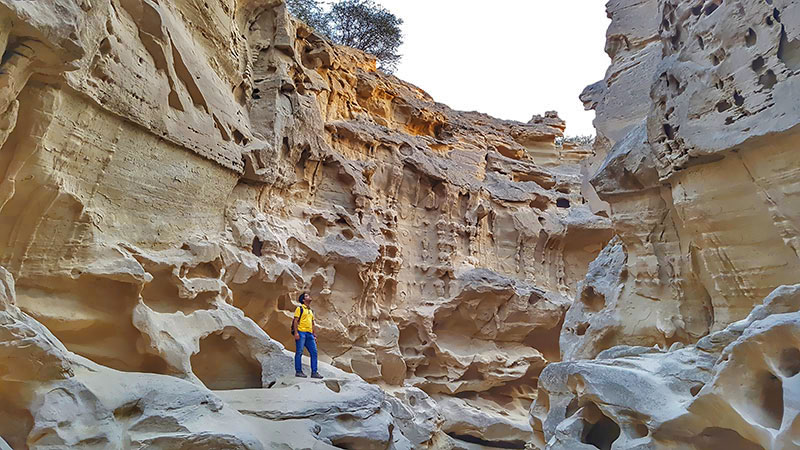
Located along the Strait of Hormoz, In the middle of the Persian Gulf, the largest island in the region with its dolphin shape stands. Outlined with vast mangrove forests, calm beaches, and filled with significant natural attractions as well as rare cultural heritages, Qeshm is the adventurers' paradise in Iran!
There are traces of human existence on this island since the Old Stone Age. During the Sassanian Empire (224-651 AD), Qeshm owned the name of "Abarkawan". It was an important trade centre during the 9th and 10th centuries for its location along the trade road connecting China to India and Africa. Marco Polo had passed through this region and returned to his hometown from Hormoz Island in the late 13th century.
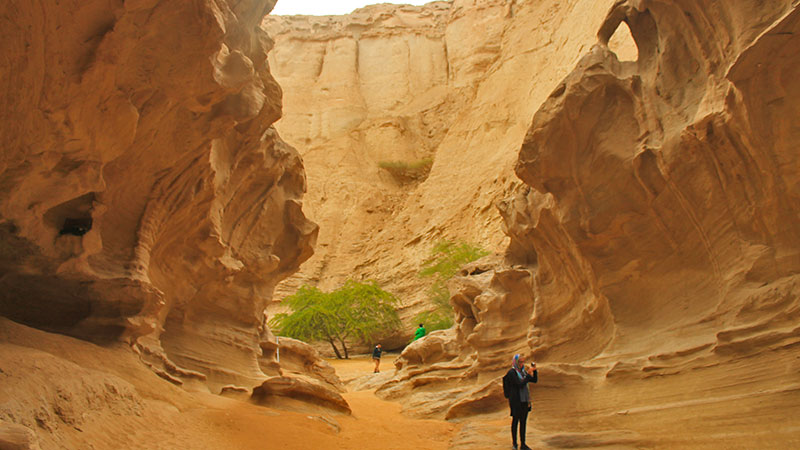
Qeshm has a strategic geopolitical situation in the Persian Gulf. It was invaded several times during the centuries by different trespassers; from the ancient Ilamids to the Abbasids, and by the Portuguese and English troops.
The nature grandeur throughout the Qeshm
Nature shows its beauty in each corner of this island. The floating roots of Mangrove or Hara forest in the Persian Gulf, the Hawksbill Turtles hatching their eggs with their tiny black noses and swimming in the azure water, the colourful salt layers in Namakdan cave, the largest salt cave of the world, the mystery of the Star Valley beside the weird but relaxing ambience of Chahkooh Canyon are some geological and natural attractions tempting every traveller to choose Qeshm.

The first geopark of the Middle East
In 2001, The United Nations launched a marine and coastline project (UNDP/GEF/SGP) in Shibderaz Village. It aimed to participate the locals in preserving the eggs of endangered Hawksbill Turtles and protecting the coral reefs.
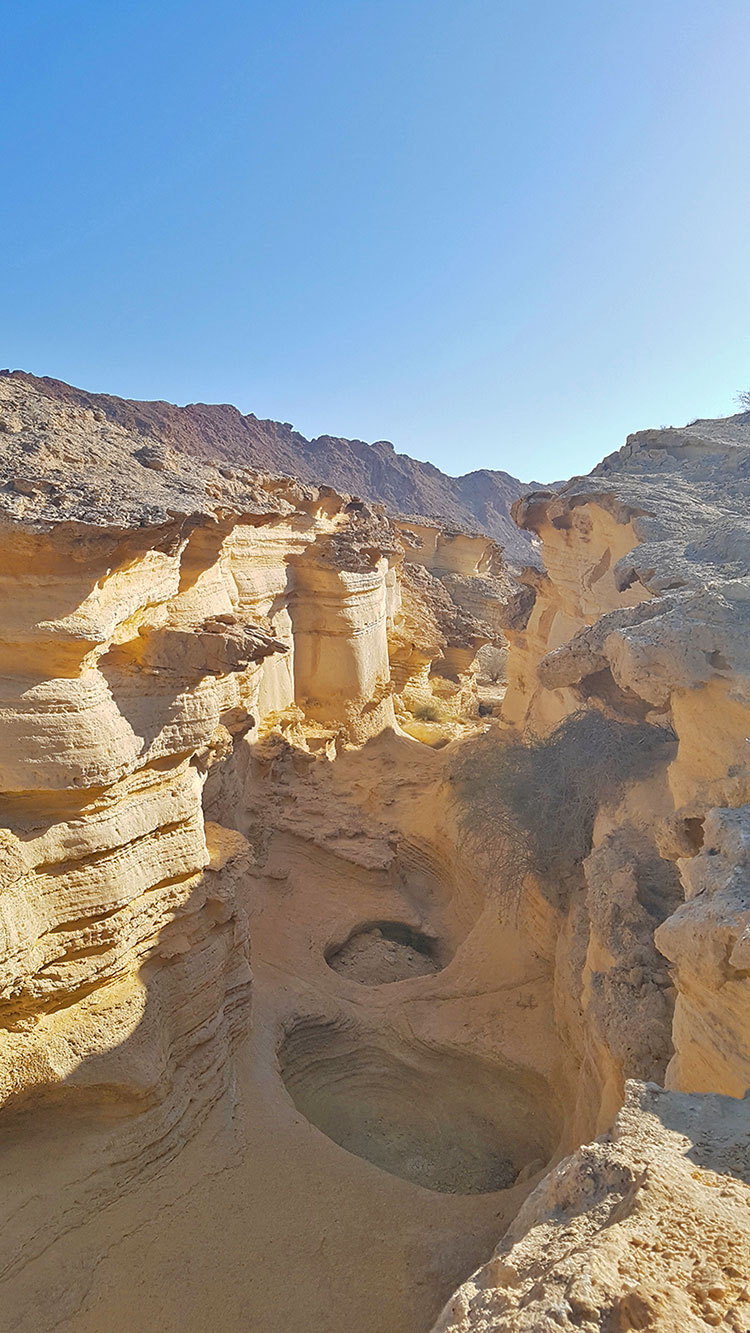
Qeshm is a successful example of Sustainable Tourism & Ecotourism in Iran. The local community, especially the island's women, help to attract tourists by protecting ecological attractions, reviving cultural heritages, and modifying traditional handicrafts.
For being the unique geological environment and home of rare species, the UNESCO Global Network of Geoparks (GGN), recognized the 32,000-hectare area on the west of Qeshm as the first geopark of the Middle East in 2006. In 2017, the mangrove forests, Hengam Island and Qeshm Island entirely were added to this registered GGN.

Rich and untouched cultural traces
Qeshm is a culturally diverse region. Traditions and rituals have a strong presence in the authentic lifestyle of people. The language, clothes, music and rituals, all show an exciting mixture of Persian, Indian, and African cultures. Food is not an exception. Delicious local seafood with a touch of Indian taste is unforgettable for Iranian and foreign travellers.
People in Qeshm speak Farsi, but it is mixed with Arabic, English, and Hindi languages. Men wear Dashdashe or "Arabic thawb" which is a long loose robe. And women use colourful traditional dresses decorated with delicate needlework and embroideries, covering their faces with Borghah, traditional black or red face masks.
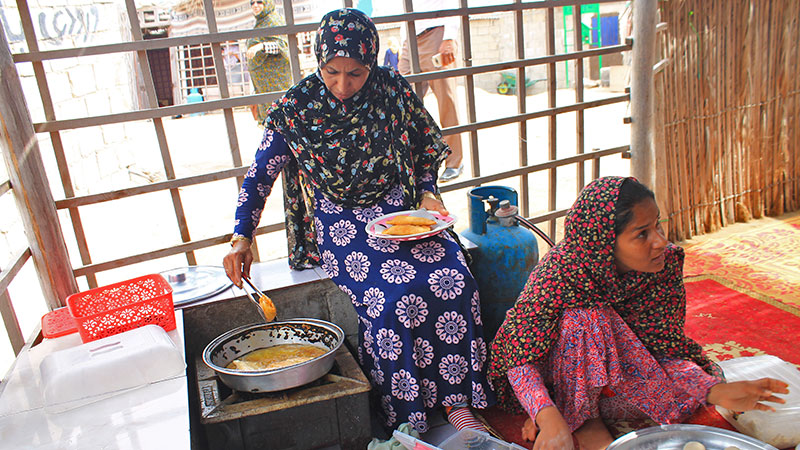
Qeshm, land of mysterious rituals
Fishing and sailing with Lenjes, ancient hand-built vessels, are the main economic activities of the southern people of Iran. Several sea-related ceremonies show the influential role of the sea in their lives.
Nowruz Sayad, translated as "the Fisherman's New Year" is a local ceremony held annually on the 1st of August. People neither go fishing nor eat seafood on this day to thank God for his generosity over the past fishing season. Gathering on the beaches, people wash their hands and faces in the sea, believing that it can heal their diseases. At the beginning of this ceremony, Shooshies, men dressed in long black robes, with white coloured faces try to spoil the party. Men fighting the Shooshies and throwing them in the sea, ward off malicious supernatural powers from their lives. The ceremony of Nowruz Sayad ends with the praying part done by elderlies wishing for happiness and blessings.
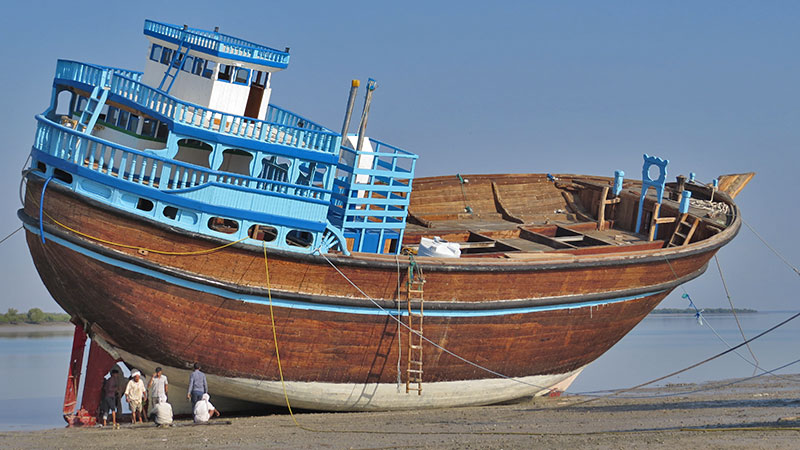
Zar Ceremony is another ancient ritual related to the African tribes. It is performed in different parts of the world like Africa, Egypt, the south of Iran, etc. The exciting story of this ceremony is about the influence of spirits on the human body. People believe that doctors cannot treat uncured pains and deep sorrows because the mysterious powers or wandering spirits hunting the bodies cause them.
To solve this, patients go to Baba Zar or Mama Zar, to remove the spirits from their bodies. Zar ceremony takes a few days to be done with special music and strange incense and dance-like movements while rubbing particular medication on the body of the patient. Strangers are not allowed to see this ceremony; however, recently, locals perform symbolic Zar ceremonies for tourists.
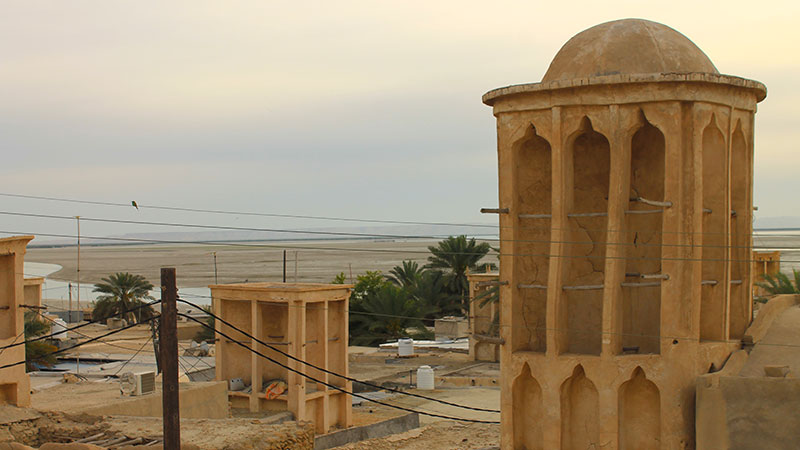
Long summers & short springs
Covering a 1,500 square kilometres area, the highest altitude of Qeshm Island is 350 meters above sea level. It is mostly hot and humid. There are just two seasons on this island: long summers and short springs. So, the best time for travelling to Qeshm island is during the cold months of the year, November to February. If you spend a few days on this beautiful island, you will ardently agree that Qeshm is the supposed "Garden of Eden" as mentioned in the Cassells Bible.
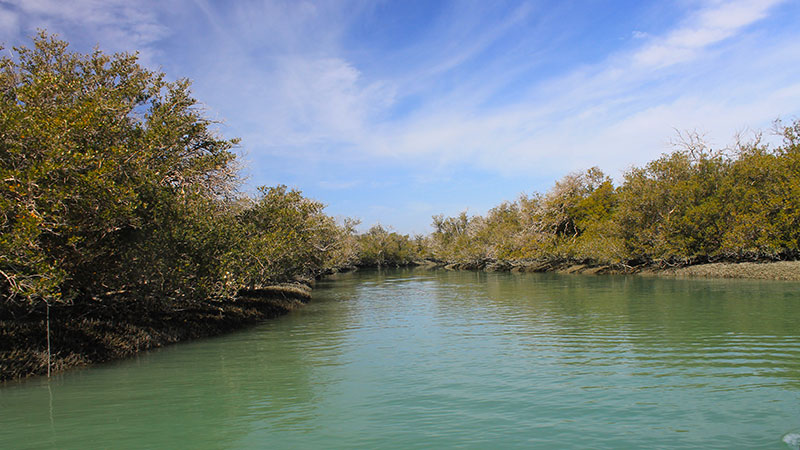
From Herra forests to pristine islands, canyons and valleys to curious rituals and most friendly people and tasty local cuisines, all of them made Qeshm a worth visiting destination in Iran.
By Samaneh Zohrabi / TasteIran

